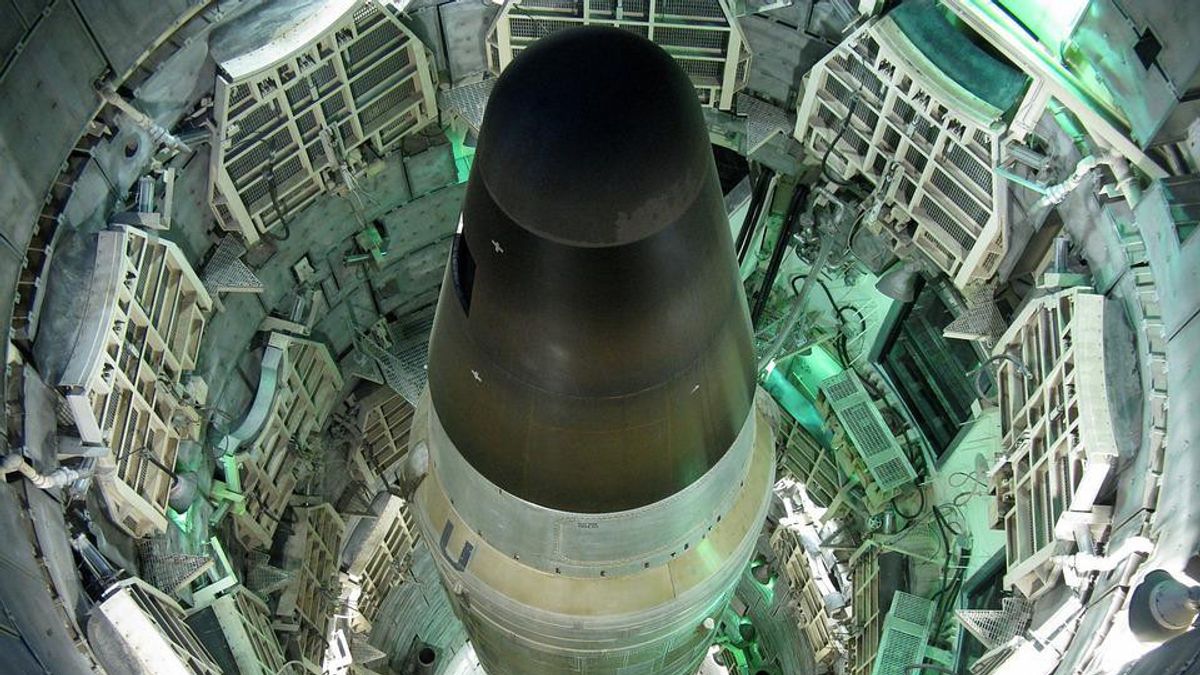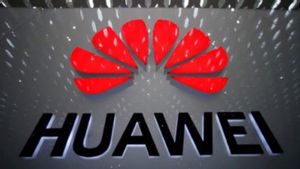JAKARTA - The administration of US President Joe Biden is investigating Chinese telecommunications equipment maker Huawei over concerns that US cell towers equipped with its equipment could capture sensitive information from military bases and missile silos. This information can then be sent by the company to China.
According to two sources and an FCC commissioner, now a cell tower equipped with Huawei equipment close to sensitive military and intelligence sites in the US, has become a matter of particular concern to US authorities.
Brendan Carr, one of the five FCC commissioners, said that the cell phone towers around Malmstrom Montana Air Force Base, use Huawei technology. The base is one of three bases overseeing the missile field in the United States.
In an interview this week, he told Reuters there was a risk that data from smartphones obtained by Huawei could reveal troop movements near the site. "There is a very real concern that some of that technology could be used as an early warning system if something happens, God forbid, an ICBM missile attack," Carr said.
Reuters was unable to determine the exact location or scope of Huawei equipment operating near military facilities. Several people interviewed by Reuters pointed to at least two other possible cases in Nebraska and Wyoming.
Crystal Rhoades, a commissioner at Nebraska's telecommunications regulator, has briefed the media about the risks posed by Viaero's proximity of cell towers to intercontinental ballistic missile (ICBM) silos in the western part of the state.
ICBMs carry nuclear warheads to targets thousands of miles away and are stored in underground silos near military bases. The Nebraska cell tower is near a missile field overseen by FE Warren Air Force Base in nearby Wyoming.
Viaero provides cellular telephone and wireless broadband services to approximately 110,000 subscribers in the region. It said in a 2018 filing to the FCC against the commission's efforts to limit Huawei's expansion that about 80% of its equipment was manufactured by Chinese companies.
Rhoades told Reuters in June, the equipment could potentially allow Huawei to collect sensitive information about the sites,
"An enemy nation could potentially see when everything is online, when everything is offline, the level of security, how many people are on duty in any building where there are really dangerous and sophisticated weapons," Rhoades said.
Rhoades said in July that he had not been given an update on the latest attempt and replaced Viaero's equipment in more than two years, although he had requested updates from them in recent weeks.
At the time of final contact, the company said it would not initiate removal efforts until FCC money was available. The FCC told Viaero on Monday, July 18 how much of their request for funds could be reimbursed.
Viaero did not respond to multiple requests for comment. Huawei also declined to comment.
VOIR éGALEMENT:
In Wyoming, the CEO of then-rural operator Union Wireless, John Woody, said in a 2018 interview with Reuters that the company's coverage area included an ICBM silo near FE Warren Air Force Base and that its equipment included Huawei switches, routers, and mobile sites.
Last month, Eric Woody, John's son and acting CEO, said "virtually all Huawei equipment that Union purchased remains on our network." He declined to say whether the tower close to the sensitive military site contained Huawei equipment.
FE Warren Air Force Base referred comments about Huawei equipment to the Pentagon. United States Strategic Command, which is responsible for nuclear operations, said in a statement to Reuters: "We continue to maintain awareness of activities near our installations and locations."
It said "concerns exist at all levels of government" but declined to provide further details on what the concerns were.
The English, Chinese, Japanese, Arabic, and French versions are automatically generated by the AI. So there may still be inaccuracies in translating, please always see Indonesian as our main language. (system supported by DigitalSiber.id)














